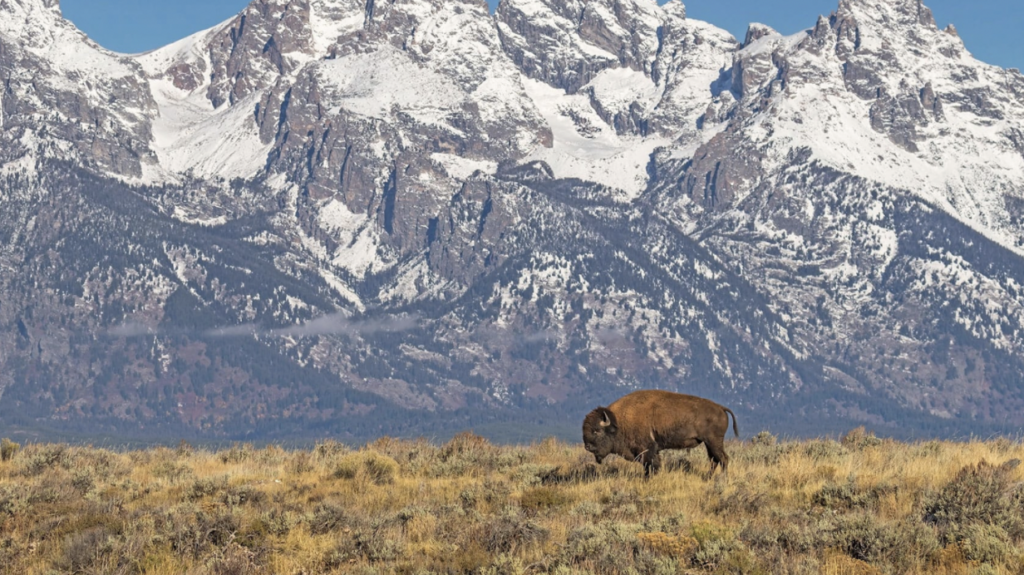Over the course of this unprecedented COVID-19 summer, our project has gone through many iterations, though ultimately we decided to build on our interviews from the spring semester and conduct a literature review. By analyzing articles, newsclips, or blog posts, we sought to paint a picture of Jackson Wyoming’s outdoor recreation community and the intersecting conversations of access and wildlife protection.
Soon into my research, I ran into a challenge. In most of the articles I was reading, I found only one kind of recreation narrative, one that was wildlife/ecology focused. These writers tended to be long-time locals who had seen the land and town of Jackson evolve and revered the uniqueness of the GYE as an ecological system. They often point to the fact that the GYE is the only ecosystem in North America that still has nearly all the same wildlife as before European genocide and colonization came to the continent. During our spring interviews with various Jackson residents, when asked about why they recreate, our interviewees who aligned with this wildlife-centered perspective said viewing wildlife was one of the top reasons they recreated. They also tended to have a very specific viewpoint on recreation, which is that it has reached astronomical, industrial levels and must be tamped down to protect wildlife. There is much validity to this viewpoint, as high levels of recreation have been shown to negatively impact wildlife, especially for the GYE’s unique ungulate populations. Nevertheless, the “protect wildlife, reject heavy recreation” sentiment has been a prevailing narrative in Jackson news stories. Examples are linked here, in the GYE-based Mountain Journal. (Article 1) (Article 2) (Article 3)
Yet this was the very issue we were trying to understand with our project to begin with. There is only one narrative that is published regularly about what recreation in Jackson should be, however there is clearly a large population that rejects this notion and finds its own way to create harmony between recreation and wildlife.
I soon realized my experimental error. Those who routinely publish opinion pieces in publications are self-selecting. They are passionate about their thoughts on recreation and wildlife, and make an active effort to contribute to that conversation in the community. While important, these folks are only some of the outdoor recreation population, yet it can feel as though the narrative they propose is the only one. We need to hear from a variety of recreators to create a more complete image of recreation in Jackson. While our research in the spring was valuable, we interviewed people who worked in the conservation field or forest management, and thus it didn’t give us the breadth of all the different perspectives of people living in Jackson.
There needs to be equal respect and consideration of all perspectives, whether it be that of the average Jackson recreator or any other recreation user group. Neither point of view is superior, and it is only once they are considered on a level playing field that a constructive conversation can begin.
I am not a resident of Jackson, Wyoming, nor have I had the good fortune to visit it. However, after a spring and summer of research, I feel as though I have come to know the nuance of its recreation communities well. This is all thanks to the incredibly patient, helpful, and kind people we interviewed and the folks at the Northern Rockies Conservation Cooperative, most importantly Ben Williamson. Rather than continuing down the “us vs them” path, there needs to be a coming together of Jackson’s recreation groups, from the most ardent wildlife conservationists to the diehard multiple-use advocates to everyone in between. Collectively, they must all acknowledge their shared love for the land, even if they disagree on how others choose to love it. From there, we can begin to have more open, complex conversations about how these differing interests can recreate and share this landscape sustainably, because it truly is one of a kind.

Bea Portela, Research Assistant and Western Resources Fellow |Bea is an undergraduate in Yale College majoring in Environmental Studies (BS) and Political Science. She is interested in dam removal, rural development, land conservation, and the politics of how to grow our network of public lands. This past semester, Bea worked as a field organizer for the Colorado Democratic Party in Boulder and looks forward to continue studying the intersection of policy, wilderness, and people.| Blog

